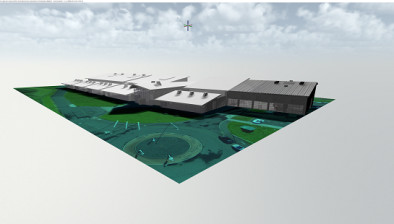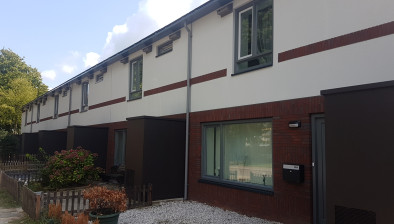And finally… Broadband runs quicker through water
Fast broadband will run through water pipes in parts of South Yorkshire as part of plans to get better internet access to people quicker.

New proposals to accelerate the rollout of broadband without digging up roads would see fibre-optic cables deployed through 17 kilometres of live drinking water mains between Barnsley and Penistone in the government technology trial.
Broadband companies could then tap into the network to deliver gigabit-capable connections to an estimated 8,500 homes and businesses along the route, helping to level up hard-to-reach communities.
The network will also be used to set up 5G masts to bring fast and reliable wireless broadband to hard-to-reach communities where wired solutions are too expensive to deliver commercially. The first trial of its kind in the UK, it will also explore how fibre can help the water industry detect leaks, operate more efficiently and lower the carbon cost of drinking water.
The University of Strathclyde will be installing a private 5G network at two remote locations in Yorkshire and will provide backhaul, the links which support the network. The project, funded by the UK Government’s Department of Digital Culture, Media and Sport (DCMS), is led by Yorkshire Water and also involves engineering company Arcadis.
Civil works, in particular installing new ducts and poles, can make up as much as four-fifths of the costs to industry of building new gigabit-capable broadband networks. The Fibre in Water scheme will demonstrate what could be a greener, quicker and more cost-effective way of connecting fibre optic cables to homes, businesses and mobile masts, without the disruption caused by digging up roads and land.
The materials that will come into contact with the water supply have been approved for use in the UK, and they have already been deployed in water pipes in other countries such as Spain.
The trials will last for up to two years and, if successful, the technology could be operational in networks from 2024 onwards.
Principal and vice chancellor of the University of Strathclyde, Professor Sir Jim McDonald, said: “The University is delighted to be a partner in this project which will enable rural connectivity for communities, as well as providing essential connectivity support for utilities and their sensing, control and security requirements.
“At Strathclyde, our StrathSDR communications team have participated in a number of very successful rural connectivity 5G projects with DCMS support, and we are also the host of the Scotland 5G Centre, who we have worked with to create 5G private networks in remote and rural locations.
“The exciting outputs of this highly innovative project really do bring new and significant opportunities to improve connectivity in remote and rural locations in a most cost-effective and innovative way for the UK and internationally.”
Digital infrastructure minister Julia Lopez said: “Digging up roads and land is one of the biggest obstacles to rolling out faster broadband, so we’re exploring how we can make use of the existing water network to accelerate deployment and help detect and minimise water leaks.
“We’re committed to getting homes and businesses across the country connected to better broadband and this cutting-edge project is an exciting example of the bold measures this government is leading on to level up communities with the very best digital connectivity.”
The first phase of the project launching today will focus on the legal and safety aspects of this innovative solution, and ensure that combining clean water and telecoms services in a single pipeline is safe, secure and commercially viable before any technology is actually installed.
If successful, the project could be replicated in other parts of the country and could turbocharge the government’s £5 billion Project Gigabit - the biggest broadband roll out in British history funding top-of-the-range gigabit connections for millions of rural homes and businesses that would otherwise be left out of commercial deployment due to the higher costs of connection. Yorkshire and Lincolnshire have more than 300,000 rural homes and businesses in line for an upgrade, including 56,800 premises in South Yorkshire.
Gigabit-capable broadband coverage has rocketed in the UK from less than 6% in 2019 to more than 66% following government measures to stimulate commercial investment from broadband companies and bust barriers to roll out. In the UK 20 per cent of water put into public supply is wasted due to leaks every day. With current technology, it can be difficult for water companies to quickly identify the exact location of a leak and carry out a repair.
Sam Bright, Innovation Programme Manager at Yorkshire Water said: “We are very pleased that the Government is supporting the development of the Fibre in Water solution which can reduce the environmental impact and day-to-day disruptions that can be caused by both water and telecoms companies’ activities.
“The technology for fibre in water has significantly progressed in recent years and this project will now enable us to fully develop its potential to help improve access to better broadband in hard-to-reach areas and further reduce leakage on our networks.”























